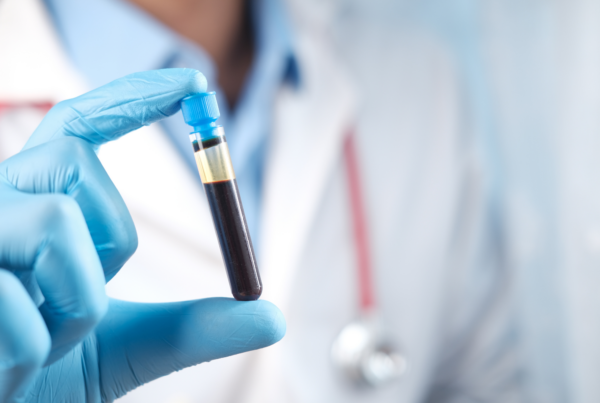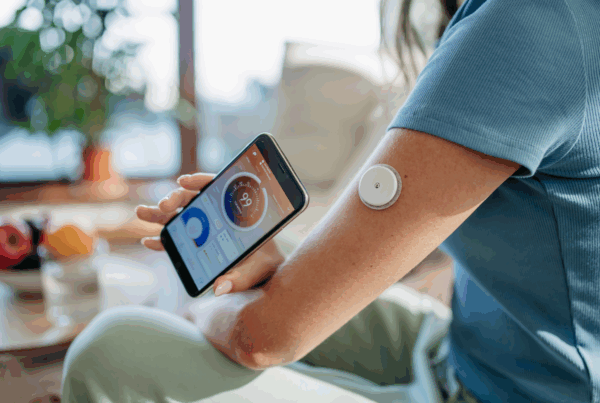Have You Ever Wondered If Your Thyroid Was Contributing To Your Health Problems?
Are you cold all the time?
Do you struggle with a healthy weight?
Have you even tried thyroid medicine before and felt better?!
If So, This Post Is For You.
In this week’s blog, I’m going to give you some important conversations to have with your physician about optimizing your thyroid levels.
It’s challenging to manage because many people exhibit the symptoms of low thyroid, yet are told their levels are normal.
Having every symptoms of hypothyroid with “normal” thyroid blood tests is called, subclinical hypothyroidism.
Your thyroid is responsible for dozens of bodily functions including metabolism, iron production, menses in women, your basal temperature, mood, and fat burning.
Thyroid Disorder Is Usually Misdiagnosed And Mismanaged.
Let’s start with understanding thyroid hormone.
Thyroid hormone is released from the thyroid gland under the direct stimulation of the pituitary gland and thyroid stimulating hormone.
The pituitary gland receives a signal that your thyroid level is low, and submits a signal to the thyroid gland by releasing thyroid stimulating hormone or TSH into the bloodstream.
THERE ARE 2 FORMS OF THYROID HORMONE.
1. Inactive thyroid hormone, T4 (90%).
2. Active thyroid hormone, T3 (10%).
90% of of all thyroid hormone is in it’s inactive, protein-bound form, T4. At the cellular level, T4 gets converted into it’s active form, T3.
In other words, at the cellular level, T4 has zero biochemical effect.
If Your Body Is Not Perfectly Converting T4 To T3, You Could Have A Normal T4 Level, But Still Be Experiencing Symptoms Of Low Thyroid.
The mainstay of treatment for low thyroid levels is Synthroid.
What’s Synthroid?
Synthroid Is Synthetic T4.
Again, this is the inactive form of thyroid hormone.
Let me review this one more time. I really want to make sure you get this.
Your thyroid, in nature, produces T3 and T4. T4 is inactive. T3 is active. When we treat low thyroid, we give you more of the inactive stuff assuming it converts to the active form. This is why many of you who have been diagnosed with low thyroid and who are on Synthroid still feel hypothyroid.
What You Need Is T3, Not Synthroid (T4).
It turns out, the number one culprit for blocking the conversion of T4 to T3 is excess body fat in the periphery. That’s right.
While most people go around their whole life thinking, “Man, I must be heavy because I have a low thyroid.” In actuality, most people have a low thyroid because they’re heavy. This is hugely important.
Excess Body Fat Blocks The Conversion Of T4 To T3.
Most physicians typically end the conversation on thyroid at the level of T4. But T3 is what actually does all of the things that thyroid is responsible for.
You may be asking ”How can you have a normal thyroid numbers but still feel low thyroid?” It’s because when most physicians check thyroid levels, they are only checking TSH and T4. They don’t look at T3 levels. Ever.
Most Physicians Never Check T3 Levels.
Why? 2 reasons…
We are never taught to. I know I wasn’t.
Because there is a drug (Synthroid) that we can give you that will suppress your TSH and make everybody who’s treating you feel better about what they are doing, but yet you still feel bad.
This is a really big deal.
Here Are Some Conversations To Have With Your Physician About Thyroid Management.
1) Do I have a low or suboptimal thyroid and I don’t even know it?
Suboptimal levels are common, especially in females age 35 to 40.
Ask your doctor to check your TSH level, a free T4 level, and especially a free T3 level.
The free T3 level the most important test for thyroid function. It alone will tell you what your numbers are at the cellular level with an active hormone.
Most people feel best when their Free T3 is at a level of about 4.0 or 4.2.
2) Could I have subclinical hypothyroidism and not know it?
Subclinical hypothyroidism = normal numbers, but all the symptoms of low thyroid.
And it’s wildly common.
Numbers alone aren’t enough to rule out thyroid problems. You should be treated based on how you feel and by optimizing your T3 levels.
If you suspect your thyroid is an issue for you, and that nobody is listening to how you are feeling because your numbers are normal, I encourage you to continue pursuing this with your physician.
3) Is there an alternative to taking Synthroid for my hypothyroidism?
If you’ve already been diagnosed with low thyroid, and you’re taking Synthroid, talk to your doctor about the alternatives.
Your physician may have prescribed you Synthroid, or T4, which drops your TSH level and gives your physician the illusion that your thyroid issues are fixed, but they are not. If you’re still having low thyroid symptoms, your physician may increase your Synthroid dose, but only T4 is increased, not T3.
Instead of increasing the Synthroid dose, talk to your physician about switching to a natural thyroid product – Nature-Throid or Armour Thyroid. The unique benefit of these is they have all of the components of thyroid, not just T4.
In my private practice, no one takes Synthroid.
I immediately swap out Synthroid for natural thyroid. Without exception, they immediately feel better, but why? Because they get what they need to feel better, which is T3.
Truth is, there are tons of reasons why understanding thyroid is important. It doesn’t matter if you’re hypothyroid or you have subclinical hypothyroidism and you’re not being treated, the goal of therapy is always the same.
How You Feel Should Be The Primary Driver Of Your Treatment, Not The Numbers.
But when you do get your thyroid tested, aim for the following numbers to feel your best:
1. TSH: under 2.0, ideally under 1.0.
2. Free T3: 4-4.2
I hope you enjoyed this post. Please talk to your physician about optimizing your thyroid levels.
Thyroid Is One Of The Most Misdiagnosed And Mismanaged Conditions.
Please leave me your comments, questions, and let me know if there are other topics you would like me to discuss in future posts.
If you prefer video content, please be sure to subscribe to our YouTub channel. You can also listen to our podcast The Concierge Medicine Show on iTunes.
Take care —
Aaron Wenzel, MD

Dr. Aaron Wenzel is a concierge physician specializing in the care of fast-moving entrepreneurs, executives, and public figures in the Nashville, TN area. Dr. Wenzel’s diverse life experience and extensive training in family medicine, emergency care, nutrition, and hormone replacement therapies give him the unique platform to provide unmatched care for his patients.





